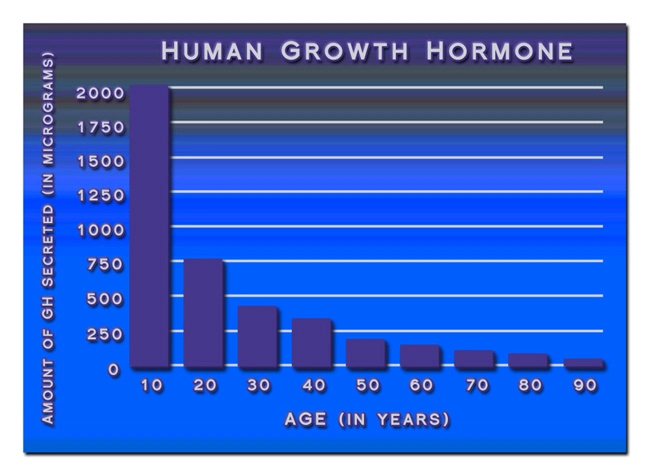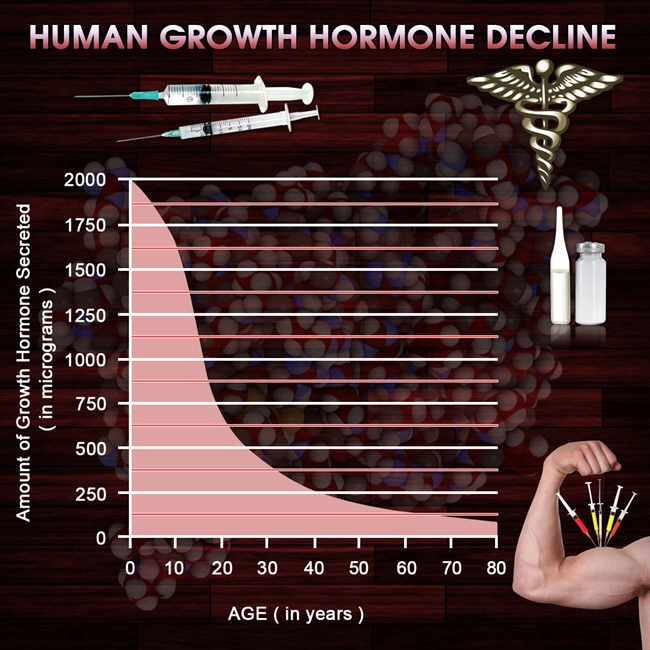
Introduction to Cross-Country Skiing and Knee Health
Cross-country skiing, a beloved winter sport among American males, combines endurance, strength, and technique. While it offers numerous health benefits, the repetitive nature of the sport can predispose skiers to knee-related injuries. Understanding the biomechanics of cross-country skiing and implementing targeted preventive measures can significantly enhance knee health and overall athletic performance.
The Biomechanics of Cross-Country Skiing
Cross-country skiing involves a complex interplay of muscle groups, with the knees playing a pivotal role in the classic and skate techniques. The classic technique requires a forward and backward motion, putting stress on the knee joint, particularly the medial meniscus. In contrast, the skate technique demands lateral movements, which can strain the lateral collateral ligament (LCL) and the iliotibial band. Recognizing these biomechanical demands is crucial for developing effective injury prevention strategies.
Common Knee Injuries in Cross-Country Skiers
American male cross-country skiers are susceptible to a range of knee injuries, including patellofemoral pain syndrome, meniscal tears, and anterior cruciate ligament (ACL) injuries. Patellofemoral pain, often referred to as "runner's knee," is prevalent due to the repetitive flexion and extension of the knee. Meniscal tears can occur from the twisting motions inherent in skiing, while ACL injuries may result from sudden stops or changes in direction. Early identification and management of these conditions are essential to prevent long-term damage and maintain athletic performance.
Preventive Measures and Training Techniques
To mitigate the risk of knee injuries, American male cross-country skiers should incorporate a comprehensive training regimen that includes strength training, flexibility exercises, and proper technique. Strengthening the quadriceps, hamstrings, and core muscles can provide better support to the knee joint. Flexibility exercises, such as yoga and dynamic stretching, can enhance joint mobility and reduce the likelihood of strains. Additionally, working with a coach to refine skiing technique can minimize biomechanical stress on the knees.
The Role of Sports Medicine in Injury Prevention
Sports medicine professionals play a critical role in the health and performance of American male cross-country skiers. Regular consultations with a sports medicine specialist can help identify potential risk factors and develop personalized prevention plans. These plans may include biomechanical assessments, gait analysis, and the use of orthotic devices to correct alignment issues. Moreover, sports medicine experts can provide guidance on nutrition and recovery strategies to support overall knee health.
Rehabilitation and Return to Sport
In the event of a knee injury, prompt and appropriate rehabilitation is crucial for a successful return to cross-country skiing. Rehabilitation programs should be tailored to the specific injury and the individual's fitness level. Physical therapy can help restore strength, flexibility, and proprioception, while gradual reintroduction to skiing can prevent re-injury. Collaboration between the athlete, physical therapist, and sports medicine specialist ensures a comprehensive approach to recovery.
Conclusion: Prioritizing Knee Health for Optimal Performance
For American male cross-country skiers, prioritizing knee health is essential for maintaining peak performance and enjoying a long, injury-free career. By understanding the biomechanics of the sport, implementing preventive measures, and seeking guidance from sports medicine professionals, skiers can enhance their knee health and continue to thrive in this demanding yet rewarding sport. Through a proactive approach to injury prevention and management, cross-country skiing can remain a source of joy and achievement for American males.
Contact Us Today For A Free Consultation
Dear Patient,
Once you have completing the above contact form, for security purposes and confirmation, please confirm your information by calling us.
Please call now: 1-800-380-5339.
Welcoming You To Our Clinic, Professor Tom Henderson.

- Preventing Ankle Injuries in American Male Volleyball Players: A Comprehensive Guide [Last Updated On: March 14th, 2025] [Originally Added On: March 14th, 2025]
- Rowing and Lower Back Pain: Sports Medicine's Role in Prevention and Treatment [Last Updated On: March 16th, 2025] [Originally Added On: March 16th, 2025]
- Optimizing Recovery for American Male Martial Artists: A Holistic Approach [Last Updated On: March 18th, 2025] [Originally Added On: March 18th, 2025]
- Hamstring Injuries in Sprinters: Diagnosis, Treatment, and Prevention Strategies [Last Updated On: March 18th, 2025] [Originally Added On: March 18th, 2025]
- Surfing Injuries in American Males: Prevention, Treatment, and Performance Enhancement [Last Updated On: March 19th, 2025] [Originally Added On: March 19th, 2025]
- Sports Medicine's Vital Role in Enhancing Triathlete Performance and Health [Last Updated On: March 20th, 2025] [Originally Added On: March 20th, 2025]
- Sports Medicine Revolutionizes Injury Management for American Male Figure Skaters [Last Updated On: March 20th, 2025] [Originally Added On: March 20th, 2025]
- Wrist Injuries in American Male Snowboarders: Epidemiology, Prevention, and Management [Last Updated On: March 20th, 2025] [Originally Added On: March 20th, 2025]
- Sports Medicine's Role in Preventing Overuse Injuries in American Male Climbers [Last Updated On: March 20th, 2025] [Originally Added On: March 20th, 2025]
- Ultimate Frisbee: Knee Health Strategies for American Male Players [Last Updated On: March 21st, 2025] [Originally Added On: March 21st, 2025]
- Sports Medicine Enhances Performance and Health for American Male Polo Players [Last Updated On: March 21st, 2025] [Originally Added On: March 21st, 2025]
- Sports Medicine Enhances Performance and Longevity in American Male Badminton Players [Last Updated On: March 21st, 2025] [Originally Added On: March 21st, 2025]
- Sports Medicine Revolutionizes CrossFit: Enhancing Performance and Health for American Males [Last Updated On: March 22nd, 2025] [Originally Added On: March 22nd, 2025]
- Sports Medicine Benefits for American Male Water Polo Players: Performance, Recovery, Nutrition [Last Updated On: March 22nd, 2025] [Originally Added On: March 22nd, 2025]
- Sports Medicine's Crucial Role in BMX Rider Recovery and Rehabilitation [Last Updated On: March 22nd, 2025] [Originally Added On: March 22nd, 2025]
- Preventing Shoulder Injuries in Lacrosse Goalies: A Sports Medicine Approach [Last Updated On: March 23rd, 2025] [Originally Added On: March 23rd, 2025]
- Sports Medicine's Vital Role in Enhancing Rugby Sevens Performance and Safety [Last Updated On: March 23rd, 2025] [Originally Added On: March 23rd, 2025]
- Preventing Stress Fractures in American Male Runners: Sports Medicine Strategies [Last Updated On: March 23rd, 2025] [Originally Added On: March 23rd, 2025]
- Tendonitis in American Male Tennis Players: Diagnosis, Treatment, and Prevention Strategies [Last Updated On: March 23rd, 2025] [Originally Added On: March 23rd, 2025]
- Rotator Cuff Injuries in American Male Swimmers: Diagnosis, Treatment, and Prevention [Last Updated On: March 24th, 2025] [Originally Added On: March 24th, 2025]
- Optimizing Recovery for Male Wide Receivers: Sports Medicine Strategies [Last Updated On: March 24th, 2025] [Originally Added On: March 24th, 2025]
- Sports Medicine Revolutionizes Training for American Male Handball Athletes [Last Updated On: March 24th, 2025] [Originally Added On: March 24th, 2025]
- Sports Medicine's Role in Enhancing American Male Fencers' Performance and Health [Last Updated On: March 24th, 2025] [Originally Added On: March 24th, 2025]
- Hip Issues in American Male Track Cyclists: Sports Medicine's Role and Innovations [Last Updated On: March 24th, 2025] [Originally Added On: March 24th, 2025]
- Preventing Back Injuries in American Male Rowers: A Holistic Sports Medicine Approach [Last Updated On: March 24th, 2025] [Originally Added On: March 24th, 2025]
- Preventing Shin Splints in American Male Runners: Sports Medicine Strategies [Last Updated On: March 24th, 2025] [Originally Added On: March 24th, 2025]
- Sports Medicine Revolutionizes Injury Management for American Male Swimmers [Last Updated On: March 25th, 2025] [Originally Added On: March 25th, 2025]
- Sports Medicine Benefits for American Male Trampoline Gymnasts: Performance and Health [Last Updated On: March 25th, 2025] [Originally Added On: March 25th, 2025]
- Optimizing Recovery and Performance for American Male Soccer Goalkeepers: A Sports Medicine Approach [Last Updated On: March 25th, 2025] [Originally Added On: March 25th, 2025]
- Sports Medicine Advances Aid Lacrosse Midfielders' Hip Health and Performance [Last Updated On: March 25th, 2025] [Originally Added On: March 25th, 2025]
- Preventing Hamstring Injuries in American Male Soccer Midfielders: Advanced Techniques [Last Updated On: March 25th, 2025] [Originally Added On: March 25th, 2025]
- Sports Medicine's Crucial Role in Recovery for American Male Soccer Defenders [Last Updated On: March 26th, 2025] [Originally Added On: March 26th, 2025]
- Sports Medicine Benefits for American Male Table Tennis Players: Performance and Health [Last Updated On: March 26th, 2025] [Originally Added On: March 26th, 2025]
- Sports Medicine: Enhancing Performance and Health for American Male Track Athletes [Last Updated On: March 26th, 2025] [Originally Added On: March 26th, 2025]
- Sports Medicine's Impact on Recovery Times in American Male Ice Hockey Players [Last Updated On: March 26th, 2025] [Originally Added On: March 26th, 2025]
- Sports Medicine's Impact on Injury Management in American Male Field Hockey [Last Updated On: March 26th, 2025] [Originally Added On: March 26th, 2025]
- Sports Medicine's Role in Enhancing Volleyball Performance and Longevity for American Males [Last Updated On: March 26th, 2025] [Originally Added On: March 26th, 2025]
- Ankle Health Strategies for American Male Beach Volleyball Players [Last Updated On: March 26th, 2025] [Originally Added On: March 26th, 2025]
- Sports Medicine's Vital Role in Enhancing Rugby Forwards' Health and Performance [Last Updated On: March 27th, 2025] [Originally Added On: March 27th, 2025]
- Sports Medicine Revolutionizes Training for American Male Cyclists [Last Updated On: March 27th, 2025] [Originally Added On: March 27th, 2025]
- Muscle Health Strategies for American Male Speed Skaters: Enhancing Performance and Longevity [Last Updated On: March 27th, 2025] [Originally Added On: March 27th, 2025]
- Lacrosse Shoulder Injuries: Diagnosis, Treatment, and Prevention Strategies [Last Updated On: March 27th, 2025] [Originally Added On: March 27th, 2025]
- Sports Medicine Advances Extend Careers of American Male Baseball Pitchers [Last Updated On: March 28th, 2025] [Originally Added On: March 28th, 2025]
- Managing Groin Injuries in American Male Hockey Players: A Holistic Approach [Last Updated On: March 28th, 2025] [Originally Added On: March 28th, 2025]
- Sports Medicine Advances Extend Careers of American Male Baseball Outfielders [Last Updated On: March 28th, 2025] [Originally Added On: March 28th, 2025]
- Sports Medicine Strategies to Prevent Achilles Tendon Injuries in American Male Runners [Last Updated On: March 28th, 2025] [Originally Added On: March 28th, 2025]
- Ankle Health Strategies for Basketball Point Guards: Prevention, Care, and Longevity [Last Updated On: March 28th, 2025] [Originally Added On: March 28th, 2025]
- Knee Health Management for Football Running Backs: Prevention, Treatment, Rehabilitation [Last Updated On: March 29th, 2025] [Originally Added On: March 29th, 2025]
- Sports Medicine: Enhancing Performance and Health in Basketball Forwards [Last Updated On: March 30th, 2025] [Originally Added On: March 30th, 2025]
- Sports Medicine Strategies for Recovery in American Male Soccer Forwards [Last Updated On: March 30th, 2025] [Originally Added On: March 30th, 2025]
- Sports Medicine's Impact on American Male Cyclists' Performance and Health [Last Updated On: March 30th, 2025] [Originally Added On: March 30th, 2025]
- Sports Medicine's Comprehensive Role in Enhancing American Male Swimmers' Performance and Recovery [Last Updated On: March 31st, 2025] [Originally Added On: March 31st, 2025]
- Sports Medicine's Role in Enhancing American Male Volleyball Players' Performance and Health [Last Updated On: March 31st, 2025] [Originally Added On: March 31st, 2025]
- Sports Medicine: Enhancing Performance and Health in American Male Track Athletes [Last Updated On: April 2nd, 2025] [Originally Added On: April 2nd, 2025]
- Knee Health Strategies for American Male Cross-Country Skiers [Last Updated On: April 3rd, 2025] [Originally Added On: April 3rd, 2025]
- Sports Medicine: Enhancing Performance and Health for Basketball Forwards [Last Updated On: April 7th, 2025] [Originally Added On: April 7th, 2025]
- Sports Medicine: Enhancing Rugby Forwards' Performance and Health [Last Updated On: April 8th, 2025] [Originally Added On: April 8th, 2025]
- Lacrosse Midfielders' Hip Injuries: Sports Medicine's Role in Recovery and Prevention [Last Updated On: April 8th, 2025] [Originally Added On: April 8th, 2025]
- Managing Groin Injuries in American Male Hockey Players: Diagnosis, Treatment, and Prevention [Last Updated On: April 8th, 2025] [Originally Added On: April 8th, 2025]
- Preventing Hamstring Injuries in American Male Soccer Midfielders: A Sports Medicine Approach [Last Updated On: April 8th, 2025] [Originally Added On: April 8th, 2025]
- Optimizing Recovery for American Male Soccer Forwards: A Holistic Approach [Last Updated On: April 10th, 2025] [Originally Added On: April 10th, 2025]
- Sports Medicine Advances Extend Careers of American Male Baseball Outfielders [Last Updated On: April 11th, 2025] [Originally Added On: April 11th, 2025]
- Sports Medicine's Role in Preventing Achilles Tendon Injuries in American Male Runners [Last Updated On: April 11th, 2025] [Originally Added On: April 11th, 2025]
- Knee Health Strategies for American Football Running Backs: Prevention to Recovery [Last Updated On: April 11th, 2025] [Originally Added On: April 11th, 2025]
- Sports Medicine Advances Enhance Performance, Longevity in American Male Swimmers [Last Updated On: April 13th, 2025] [Originally Added On: April 13th, 2025]
- Sports Medicine Benefits for American Male Track and Field Athletes: Performance and Health [Last Updated On: April 13th, 2025] [Originally Added On: April 13th, 2025]
- Sports Medicine Revolutionizes Training and Health for American Male Cyclists [Last Updated On: April 15th, 2025] [Originally Added On: April 15th, 2025]
- Sports Medicine: Revolutionizing Rugby Forwards' Performance and Health [Last Updated On: April 15th, 2025] [Originally Added On: April 15th, 2025]
- Cross-Country Skiing: Knee Health Risks, Prevention, and Management Strategies [Last Updated On: April 16th, 2025] [Originally Added On: April 16th, 2025]
- Preventing Achilles Tendon Injuries in American Male Runners: A Sports Medicine Approach [Last Updated On: April 17th, 2025] [Originally Added On: April 17th, 2025]
- Sports Medicine Enhances Performance and Longevity in American Male Volleyball Players [Last Updated On: April 18th, 2025] [Originally Added On: April 18th, 2025]
- Sports Medicine Advances Aid Lacrosse Midfielders' Hip Health and Career Longevity [Last Updated On: April 18th, 2025] [Originally Added On: April 18th, 2025]
- Preventing Hamstring Injuries in American Male Soccer Midfielders: A Comprehensive Guide [Last Updated On: April 18th, 2025] [Originally Added On: April 18th, 2025]
- Groin Injuries in Hockey: Diagnosis, Treatment, and Prevention Strategies [Last Updated On: April 18th, 2025] [Originally Added On: April 18th, 2025]
- Optimal Recovery Strategies for American Male Soccer Forwards: A Comprehensive Guide [Last Updated On: April 18th, 2025] [Originally Added On: April 18th, 2025]
- Knee Health Strategies for American Football Running Backs: Prevention to Rehabilitation [Last Updated On: April 19th, 2025] [Originally Added On: April 19th, 2025]
- Sports Medicine: Enhancing Performance and Recovery for Basketball Forwards [Last Updated On: April 19th, 2025] [Originally Added On: April 19th, 2025]









